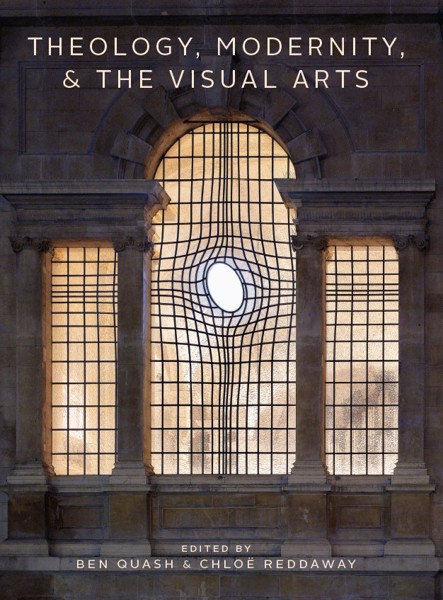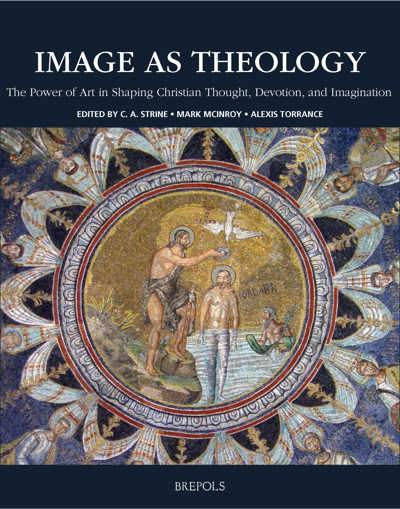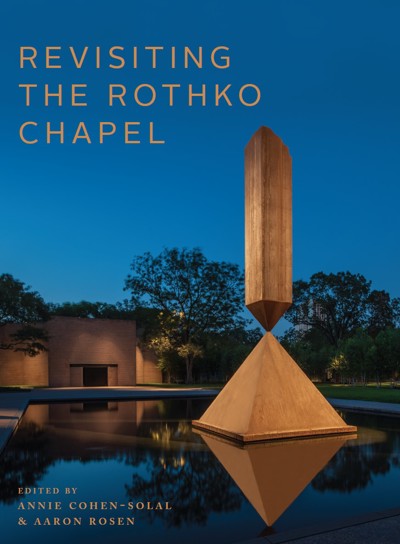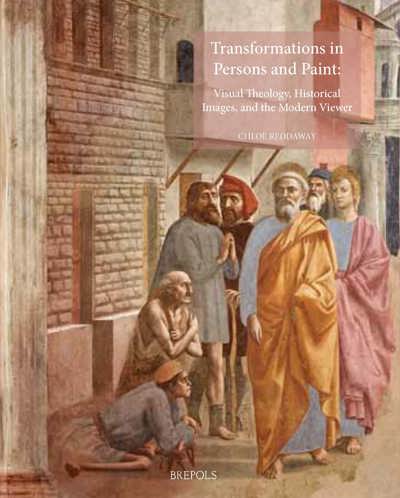
Image as Theology
The Power of Art in Shaping Christian Thought, Devotion, and Imagination
Strine Casey, Mark Mclnroy, Alexis Torrance (eds)
- Pages: 244 p.
- Size:220 x 280 mm
- Illustrations:11 b/w, 40 col.
- Language(s):English
- Publication Year:2022
- € 110,00 EXCL. VAT RETAIL PRICE
- ISBN: 978-2-503-58121-7
- Hardback
- Temporarily Out of Stock
Our lives are saturated with images, and this book explores how they shape sacred texts and theological concepts.
“Image as Theology is a fascinating collage of forays into a perennial question for Christian theology: do artistic images explicate theology or do they generate distinctive theological understanding? Multi-disciplinary vectors into the heart of the matter by accomplished scholars have yielded here a volume rich in extremely fruitful insight and manifold potential to generate more. Highly recommended.”
(Prof David Lyle Jeffrey, Emeritus Distinguished Professor of Literature and the Humanities, Baylor University)
“This rich, complex, and often gorgeous volume engages both the concept of the image and particular images as theologically significant. Ranging over literature, visual art, phenomenology, and Scripture, it achieves amidst its disparate exemplars and conversations a striking and luminous coherence of vision. This volume makes the case—convincingly, beautifully—that all who care about theology ought to consider images, image-making and imaging central to reflection on divine life in the world.”
(Dr Natalie Carnes, Associate Professor of Theology, Department of Religion, Baylor University)
“With a brilliant roster of authors, this book both recovers and innovates on very old but very deep understandings of visual theology—wherein images have less to do with illustrating concepts than with modes of primary theological reasoning. Written by leading scholars in biblical studies, theology, and art history, these essays generate insights across a remarkable range, both in terms of what kinds of image are brought into view—from ancient Egyptian carvings to Cézanne’s still-life paintings—and in terms of what kinds of theology are in play—from Orthodox to Protestant and from Christology to eschatology. This book is an extraordinary resource for anyone who wants to think seriously about art, theology, biblical studies, and especially the kinds of understandings possible when the three operate together.”
(Dr Jonathan A. Anderson, Postdoctoral Associate of Theology and Visual Arts, Duke University)
« ...beau livre, magnifiquement éclairé par une iconographie souvent originale et toujours utile (dans le sens où les œuvres sont commentées et ne servent pas uniquement à l’illustration) » (Régis Burnet, dans Revue d'Histoire ecclésiastique, 119/3-4, 2024)
Dr C. A. Strine is Lecturer in Ancient Near Eastern History and Literature at the Univerity of Sheffield. He is the author of the award-winning monograph Sworn Enemies and Director of the Back Where You Came From project, reading biblical stories about migration and making art with sanctuary seekers.
Mark McInroy is Associate Professor of Theology at the University of St. Thomas (Minnesota). He is the author of Balthasar on the Spiritual Senses: Perceiving Splendour (OUP, 2014), for which he received a Manfred Lautenschlaeger Award for Theological Promise in 2015.
Alexis Torrance is Archbishop Demetrios College Chair of Byzantine Theology. He is the author of Repentance in Late Antiquity: Eastern Asceticism and the Framing of the Christian Life, ca. 400–650, for which he received a Manfred Lautenschläger Award for Theological Promise in 2015.
Our lives are saturated with images. They exert an unparalleled power in contemporary culture. However, the power of images is in fact nothing new. Although texts are often the most important historical sources for academics, the image played an enormous role for those who actually lived in these past societies. Images communicated all manner of concepts and messages to a much wider audience than theological texts. Throughout history, images frequently depicted God, human beings, and their relationship in a manner that was meant to teach theology and inspire awe. Historically speaking, most people who have done theological reflection have done so in intimate conversation with the images seen in sacred spaces.
This volume explores how images themselves are theology, how they influence sacred texts and theological concepts in a way that words cannot on their own. In part one, the book presents five essays investigating the ways in which images have shaped sacred and theological texts. In part two, the book offers five discussions of the sort of theological work that images can perform that words are unable to do. The volume concludes by outlining areas for future research and exploration based on the insights achieved among the chapters. The collection is, in its totality, a celebration of how central the image has been in shaping theology and how it should continue to do so.
Foreword — Thomas Pfau
Introduction: The Place of the Image — C. A. Strine, Mark McInroy, and Alexis Torrance
‘Mischmetaphors’: (Re-)Presenting God in Unusual and Sophisticated Ways — Brent A. Strawn
Mary’s Image as Theology — Jane Heath
Early Christian Visual Theology: Iconography of the Trinity and Christ — Robin M. Jensen
Persons or Principles? The Meaning of the Byzantine Icon Revisited — Alexis Torrance
The Catalytic Image: Migration, Image, and Exegetical Imagination in the Jacob Narrative (Genesis 25–33) — C. A. Strine
Image as Theology in Dante’s Commedia: Praying for Each Other’s Good — Vittorio Montemaggi
Beholding the Radiant Invisible: The Incarnate Image in Maurice Merleau-Ponty, Hans Urs von Balthasar, and Jean-Luc Marion — Mark McInroy
Brought into the Fold — Ben Quash
The End of Images: Towards a Phenomenology of Eschatological Expectation — Judith Wolfe
Conclusion: Whither the Image? — C. A. Strine, Mark McInroy, and Alexis Torrance
Bibliography
Index of Subjects
Index of Authors
Index of Biblical Texts




